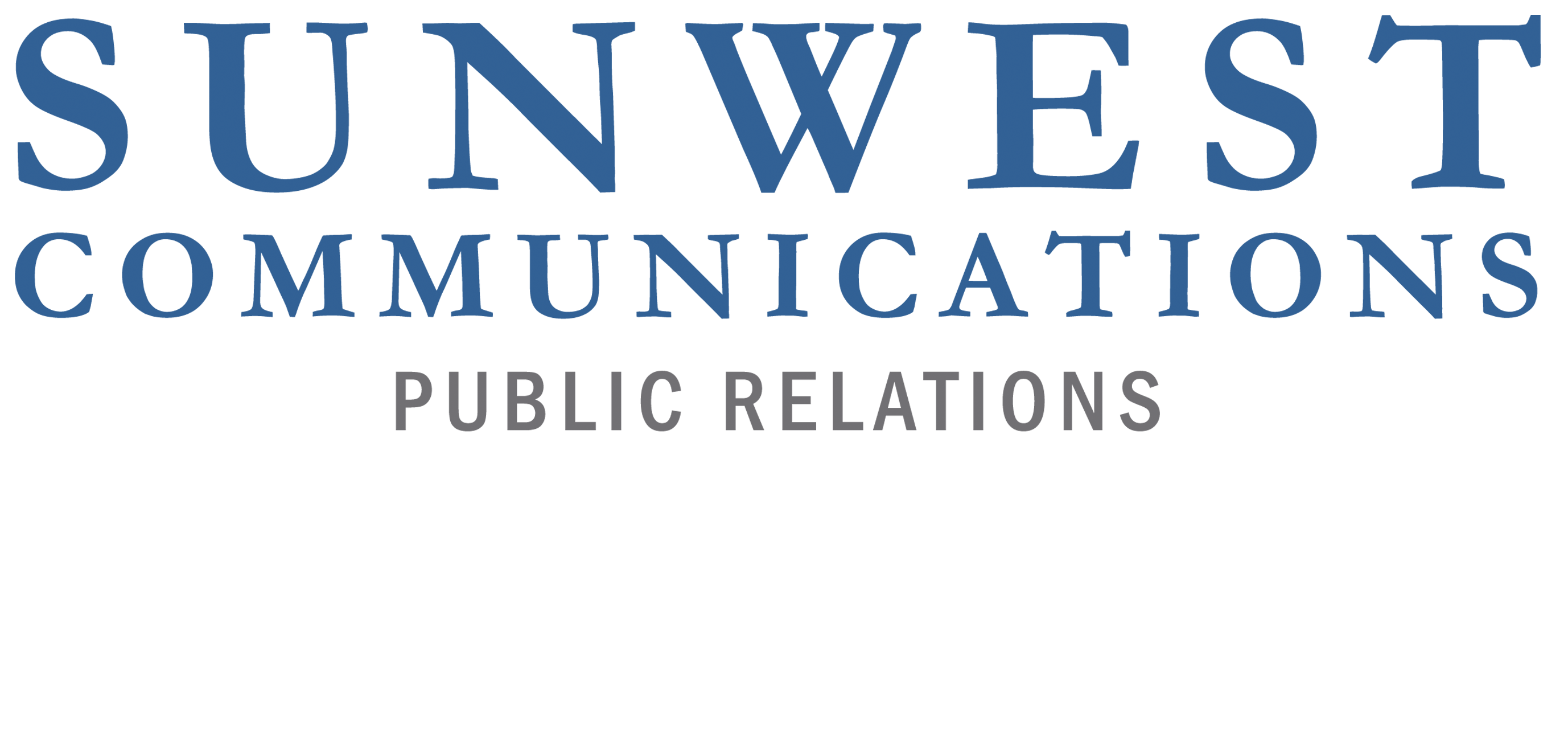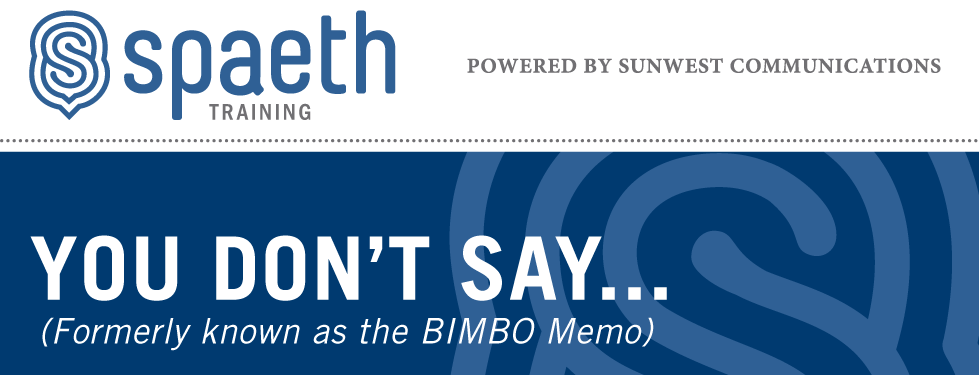[Newsletter] 11.14.24 | “We are not God,”
November 6, 2024Another “not-a-crook” comment from an election official. Examples of the wrong thing to say from the mayor of Chicago and yes, the non-comedian at Madison Square Garden. What’s in a name from women’s soccer in Boston and an airport in New Zealand. Commendable reaction from McDonalds handling the flap over their high-profile fries staffer. Another mayor in NYC has a lawyer who needs advice, and finally, an article of interest in the Wall Street Journal, “Don’t Talk.” Are they trying to put me out of business?
“I AM NOT A CROOK”
“We are not God,” said iconic Democratic pollster John Zogby warning others in his profession to be cautious in calling the presidential race early. The polls are just too close, too volatile and too chancy to be taken as gospel truth. Zogby, who has a new book, “Beyond the Horse Race: how to read polls and why we should,” urged consumers of polls to educate themselves about what polls can tell us, and what they can’t. Sounds like good advice, and by the time you read this, we’ll know which pollsters were at least god-like and which qualify as fallen angels.
The Washington Examiner, “Zogby cautions poll watchers: ‘We are not God’” October 11, 2024
THE RUNNERS-UP
“China does not teach its people to hate Japan,” said a spokesman for the Chinese Foreign Ministry. Normally, a comment like this would pass unnoticed, but we’re including it because it’s clear that China is indeed demonizing Japan. See the headline, “China’s patriotic rhetoric takes a violent turn.” The world is taking notice because of the high-profile deadly stabbing of a 10-year-old Japanese boy and a number of notable incidents of people – individuals with state sponsorship like teachers – posting videos teaching children about “blood feuds” and Japan’s 1931 invasion. This kind of comment from an official Chinese entity is clearly a code message which is tied right into their expanding presence in the China Sea in waters that are supposed to be international or that are claimed by other Asian nations.
The Wall Street Journal, “China’s Patriotic Rhetoric Takes a Violent Turn” Oct 3, 2024
“I’m not a crazy radical guy,” said Jeff Buongiorno, a Republican candidate for the elections supervisor in Palm Beach County, after showing up to confront voter registration workers from Mi Familia en Acción. He added, “We didn’t want to rough them up or throw them out.” Mr. Buongiorno said he had wanted to expose what he called vulnerabilities in voter-registration systems, and “did not harass or threaten anybody.” Where to start? Focusing on voter integrity as the message should have been the focus. We will be watching to see if the voters elect Mr. Buongiorno and if they do, we recommend team building and leadership coaching as soon as possible.
The New York Times, “Conservative Activists Are Monitoring, and Filming, Voter Registration Sites” Oct 4, 2024
RIP, PETE ROSE
“I did not bet on baseball.” Marking his death, the clip of baseball great Pete Rose repeating that in August 1989 when the commission announced his permanent ban from baseball for-wait for it-betting on baseball has been replayed and discussed a thousand times along with arguments about MLB’s now-welcoming stance on gambling. But we should also talk about Pete’s legal counsel who appeared with him at the August 24 press conference, and this is the difference between the court of law and the court of public opinion. Pete was not found guilty of betting on baseball. Does that surprise you? MLB agreed to make ‘no formal finding’ on the question. Instead, under a provision known as Rule 21, Pete was declared ineligible under the final, catch-all phrase finding that “allegations”-not even facts, just allegations-of misconduct “not in the best interest of baseball” are cited as grounds for expulsion for any and all activities not mentioned before or even enumerated. Having apparently negotiated the language Pete could have used to plead his case, at the press conference where Rose hung his head and said, “I did not bet on baseball, that’s all I can say.”
As I have written for three decades, when a speaker repeats and denies a negative word, the listener is likely to overlook the denial and hear the opposite of what the speaker is trying to say. Compounding the problem, Rose’s lawyer then stepped forward and read Rule 21 all the way through, repeatedly emphasizing that there was no finding of betting and that Pete’s ineligibility was based on the final “not in the best interest” but, he emphasized, “not betting.” He mentioned betting so many times that at the end of the press conference, all everyone heard was betting. Pete’s lawyers potentially saved him legally with the agreement. Pete’s behavior did him in. Another quote from the episode was his response to whether he was going to seek help, and he insisted, “I don’t have a gambling problem,” causing everyone to believe he did, and adding he didn’t need help.
Some commentators think Pete eventually owned up to betting, but never for the team to lose. I can’t opine on that. If he had owned up, sought counseling for what is recognized as a disease, would things be different? Commissioner Giamatti at the conference announcing his decision was asked if Pete had behaved differently, would the outcome have been different? His response was that if things had been different, would things have been different, and he responded that he was not going to speculate because there was so much to deal with which wasn’t different. The remark got a laugh, but there was a hidden meaning. Could things have been different for Pete Rose? I think they could have been—if he had been listening.
USA Today, “MLB’s Pete Rose ban, gambling embrace is hypocritical. It’s also the right thing to do” Oct 1, 2024
WRONG THING TO SAY
“Slavery” is one of those major power words. Chicago Mayor Brandon Johnson significantly raised the stakes by comparing opponents of his plan to fund substantial raises for the Teachers Union, by borrowing $300 million at high interest as a “bridge” to supporters of slavery. Coverage of the proposed deal was intense. Interest rates would drive the cost to $700 million, at a time when only 25% of Chicago students graduate with proficiency in math and English. The entire seven-member school board resigned in protest and refused to fire and replace the Superintendent. We’re now waiting to see what the communication strategy will be going forward. The first question is—a “bridge” to what? Where’s the Wizard of Oz and his curtain when we need him?
ABC, “Chicago mayor likens critics of school spending plan to supporters of slavery” Oct 8, 2024
“Garbage” turns out to be another “high velocity” (meaning it spreads quickly) word. We know, we said we were staying out of the presidential campaign, but the back-and-forth of the word is too good a lesson to pass up. Most readers undoubtedly followed the self-described comedian at President Trump’s Madison Square Garden rally who described Puerto Rico as “a floating pile of garbage,” generating outrage. Pundits, politicians and presidents couldn’t resist piling on – and it was a disgusting non-joke, but President Biden expanded the criticism saying, “The only garbage I see is floating is his supporters.” We’re resisting commenting on the debate, but it is a powerful example of how words bounce back and forth.
The Hill, “Biden appears to call Trump supporters ‘garbage’” Oct 29, 2024
WHAT’S IN A NAME?
“Bos Nation”—what’s that, and what’s with the quick retraction of the launch and slogan? It’s Boston’s National Women’s Soccer League team, and the name is meant to play on “BOS,” the city’s airport code, as well as the idea of a “boss” or leader. It’s a bit unusual (some fans were hoping for the return of the Breakers), but the initial ads included the slogan “Too many balls,” intended to humorously reference the number of men’s sports teams. Admittedly, it didn’t quite land. To their credit, the team quickly backtracked, saying, “While we had hoped to create a bold and buzzworthy brand launch, we missed the mark.” They added a few standard apologies, but the main takeaway is that if you knock over the bucket of, er…balls, it’s best to move quickly to clean it up.
The Wall Street Journal, “Boston’s New Women’s Soccer Team Apologizes for ‘Too Many Balls’ Ads” Oct 16, 2024
GREAT SIGN
“Max hugs 3 minutes” read the signs at New Zealand, Momona’s airport at the passenger drop off zone. Who hasn’t waited…and waited…while a family or loved ones draw out their goodbyes? We hereby inaugurate a “great signs” category!
CBS News, “New Zealand airport with 3-minute cap on farewell hugs “surprised how much global interest” there’s been” Oct 24, 2024
GOOD REACTION
We’re still nibbling around the edges of the presidential campaign and give thumbs up to how McDonalds handled the reaction to one of their franchisees giving Trump a platform to hand out fries. McDonalds quickly issued a statement saying they weren’t red or blue, they’re golden.
NY Daily News, “McDonald’s issues statement after Trump campaign stop at Pa. location” Oct 21, 2024
LAWYERS AND COMMUNICATION
“Gratuities are not federal crimes. Courtesies to politicians are not federal crimes,” said NYC Mayor Eric Adams’ lawyer, Alex Spiro, arguing that contributions and things like upgraded or free flights were simply normal gestures and not bribes. Adams is the first mayor to be indicted and while most of the incidents cited seem like pretty small stuff, one allegation is that Adams pulled strings to get the new Turkish embassy building certified although it had failed repeated fire safety inspections. This is an example of the dilemma that lawyers face communicating both in a courtroom and in the court of public opinion. The comments here were made at a public press conference following a court appearance. We see several risks with this phrasing. If they are not federal crimes, are they crimes nonetheless? This confirms that Adams engaged in some self-dealings – namely, ‘courtesies’ and ‘gratuities.’ He should have said “The Mayor’s actions have always been to help constituents or others, like foreign businesses and interests, build and stay in the Big Apple and be part of our international activities.” He may have said/done this elsewhere but the “no crime” phrase was destined to crowd out anything else.
The Wall Street Journal, “How Erdogan’s Monument to Turkish Power Landed New York’s Mayor in Legal Trouble” Oct 7, 2024
ARTICLES OF INTEREST
“Don’t talk” is the advice in this Wall Street Journal piece on workplace issues. It cites examples of times when it’s better to let the other person (or persons) blither on or just to create an uncomfortable silence where they might start talking again or just agreeing to what you want. Calling the lawyers! Another bit of advice from experienced litigators. We’ll still focus on how to have and deliver a memorable message and how to focus on what the audience hears, believes and remembers, but this is worth a look.
The Wall Street Journal, “To Get What You Want, Try Shutting Up” Sep 25, 2024
“You Don’t Say” is a reminder not to repeat and deny a negative word because of how the listener hears words. When you repeat and deny a negative word, the listener is likely to overlook the denial and hear the opposite of what the speaker is trying to say.

